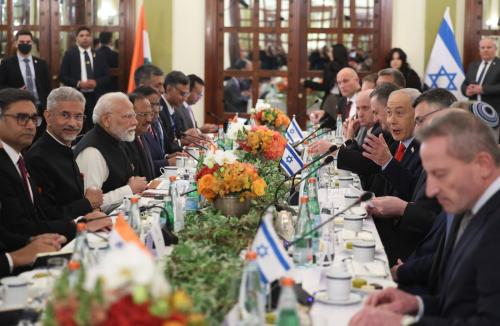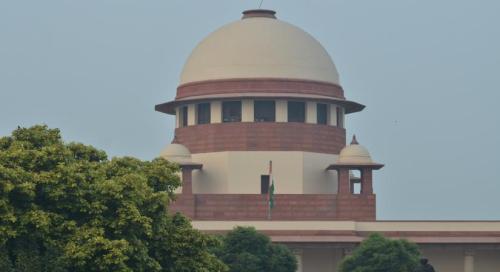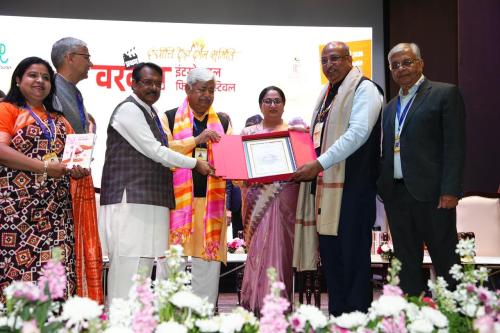By Dinker Raval As the 2020 presidential campaign is intensifying, each candidate’s vision is coming into focus. Historically, visionary leaders provide the nation with a futuristic dream to identify with, be excited about, and march forward with it. Examples are: Franklin D. Roosevelt’s New Deal, Kennedy’s exploring the New Frontier to put a man on the moon, and Reagan’s creating a world without nuclear weapons. Presidential candidate, V. P. Biden, in his acceptance speech referred to these words of wisdom of Ella Baker, a giant of the Civil Rights movement: “Give people light and they will find a way”. He further elaborated that he will be “an ally of the light not of darkness” as the main theme of his agenda. One ray of this light is to promote pursuit of knowledge among the neediest in the society and facilitate easy availability and accessibility to knowledge entities. Knowledge empowers individuals with personal vision, ambition, and curiosity. Knowledge is personal asset nobody can take away. It enhances awareness, skills, and preparedness to capture an opportunity when it strikes. It enables an individual to even create an opportunity. Philosopher Seneca said “luck is what happens when preparation meets opportunity.” Providing opportunity is society’s responsibility and preparedness is an individual’s obligation. Bringing these two together is the task of an empathetic and visionary leader. President Kennedy, a visionary leader, demonstrated this in his effort to put a man on the moon when he created NASA. He brought scientists from abroad who were prepared in scientific disciplines and provided opportunity to them and achieved his mission of putting a man on the moon. President Lyndon Johnson visualized the potential of the minority to make positive contribution to build a great society and the nation’s economy and passed the Civil Right Act. President Obama correctly observed, “Knowledge is the currency of the future.” Thus, Biden’s new frontier can be modernization of America’s Knowledge Infrastructure and “make America a beacon of knowledge for all.” Core Knowledge Infrastructure, (CKI) consists of more than knowledge entities such as universities and colleges and accrediting agencies. It includes libraries, research labs, consulting and training institutes, broadband connectivity, as well as publishers and book clubs. This was America’s strength for maintaining its global competitiveness all these years. Another component of CKI was its immigration system with a variety of visas that supplied it with highly trained techno-professionals, scientists, engineers, and medical professionals contributing to America’s economy and prosperity. This strength has remained hither to unrecognized in its political realm. On the contrary, in recent years it has come under attack for short term political gain at the cost of long-term benefits. Political leaders in their campaigns have promoted revamping physical infrastructure but overlooked modernizing its Core Knowledge Infrastructure. Now Canada and Australia are emerging along with Europe as competitive centers for higher learning. It is time for our political leaders to carve out strategies to strengthen knowledge infrastructure and make it a part of their political platform. Another important component of U. S. knowledge infrastructure that has remained unrecognized are its Historically Black Colleges and Universities known as HBCUs. The time has now come to bring them into the lime light as HBCU’s flagship institution Howard University’s Alumnus, Kamala Harris, is the Vice-Presidential candidate and Presidential Candidate Joe Biden has made diversity a part of his campaign. The HBCUs major strength is to serve as main knowledge entities to educate and train minority and diverse students. They have faculty with linguistic and cultural expertise to provide broader and multiple perspectives for their holistic development. They have traditionally maintained excellent liberal arts curricula. Now they also have professional schools of engineering, business, medicine, and computer science. This combination makes them capable of preparing professionals with both hard and soft skills an emerging need of the 21st century knowledge society. Above all, they have an accumulated experience of producing professionals despite limited resources. V. P. Biden’s campaign, therefore, has the golden opportunity to make an all-inclusive modernization of America’s Core Knowledge Infrastructure (CKI) the focal point of his agenda. If V. P. Biden becomes the President, he should appoint a National Knowledge Commission. It should consist of experts representing all branches of knowledge and all political persuasions to make America the beacon of global knowledge. It should undertake the task of assessing the existing knowledge entities both majority and minority, their needs, and how they can be met. And recommend policy options for the Biden administration to promote diversity. Kamala Harris should be appointed as the chairwoman of the commission as she has exemplified the icon who pursued knowledge as a part of her maternal heritage. She can be a spokesperson to convey the message to our aspiring youths of how the pursuit of knowledge is a passport to progress and prosperity. Thus, modernizing America’s knowledge infrastructure should be part of Biden’s plan and strategy. (Dr. Dinker Raval is professor emeritus of Morgan University, and a recipient of university’s distinguished Iva Jones Medallion and served as adjunct professor at John’s Hopkins University, Baltimore, MD for two decades.)
Modernizing America’s knowledge infrastructure can be Biden’s new frontier
- by Rinku
- October 13, 2020 2 minutes

Former U.S. Vice President Joe Biden. (Xinhua/Liu Jie/IANS)












